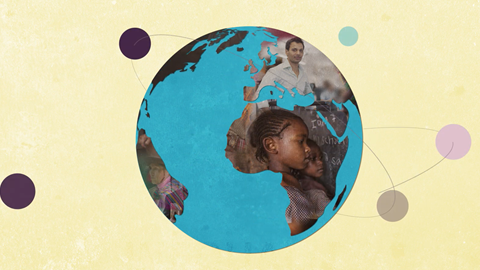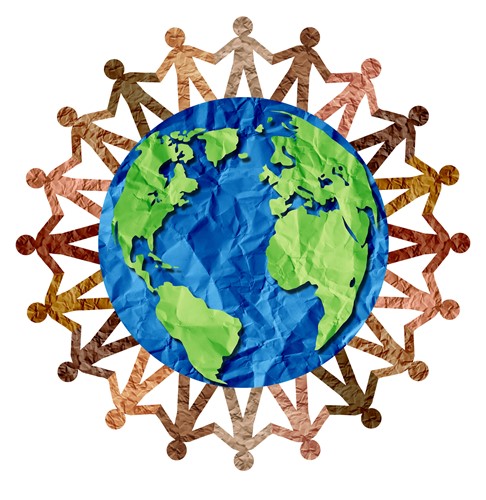Project
Conducting a longitudinal study of a Ford Foundation programme to strengthen the resilience of civil society organisations and networks in the US and around the world

Project
Running for more than five years now, the Ford Foundation’s Building Institutions and Networks Initiative (BUILD) is a cross-cutting programme supporting over 350 civil society organisations and networks in growing their impact to further move the needle on inequality.
"I really appreciate all the careful consultation and thinking that the process and work reflect.”
Ford Foundation Executive Vice President
The Ford Foundation has a set of ambituous goals for BUILD it aims to reach by the end of 2027, and NIRAS is a long-term partner in this journey. From 2018 to 2021, we conducted a developmental evaluation of the programme's model, and today we are assessing ‘the BUILD effect’ in a longitudinal study that focuses on the programme’s impact on programme partners' organisational and financial resilience and the ways in which partners achieve mission impact over time.
The study will also assess how partners that do not receive continued BUILD support experience the evolution of organisational and financial resilience while also looking at impact. Based on a utilisation-focused approach and applying the Equitable Evaluation Framework™ (EEF) throughout the study, NIRAS seeks to measure and describe whether, how, and to what extent BUILD supports partners to demonstrably increase their resilience. The study also aims to generate learnings about BUILD-like grant making for partners and their field.
The key audiences for this learning include BUILD programme partners, the Ford Foundation, and the broader philanthropic community.

Co-creating the study design and agreeing on definitions
In a series of six meetings with an extensive number of BUILD stakeholders, the co-creation phase of this longitudinal study has been key to ensuring that the study’s findings, conclusions and recommendations have value for its intended users. These meetings created space for establishing constructive and trusting working relationships between the NIRAS Evaluation Team, BUILD programme partners, and other stakeholders of the study. The relationships and insights that emerged from the process have led to the design of a collaborative framework for collecting meaningful and pertinent insights that reflect partners’ experiences of ‘resilience’ and ‘impact,’ and the best ways to measure and communicate these and other essential experiences that programme partners seek to explore.
“I am so grateful for all the thoughts, insights and wisdom [NIRAS] brought to the meeting on Gorée Island [in-person co-creation meeting].” BUILD programme partner.
A key part of the co-creation process was hearing BUILD programme partners reflect on the core concepts and practices that underlie their work and how they define these. Understanding these definitions and articulating them in a way that is true to partners’ experiences centres the evaluation’s process and findings in those experiences.
BUILD grantees are expected to increase their resilience in at least one core area of their choosing:
Core concepts and practices where definitions were agreed:

Choosing the right evaluation questions to explore the relationship between organisational resilience and mission impact
Although the original evaluation questions have evolved throughout the co-creation process, they can be categorised into four themes: Theory of Change, Mission Impact, Organisational Resilience and Timeline of BUILD Support.
Theory of Change questions focus on what, if any, is the relationship between BUILD support, increasing resilience and mission impact for partner organisations? Specifically how and to what extent did BUILD support increase mission impact and how, and to what extent, did BUILD support increase organisational resilience, including financial resilience?
Mission Impact questions aim to understand what the BUILD programme partner’s impact has been since beginning to receive BUILD support. To what extent has the impact changed from pre-BUILD? Does BUILD contribute to strengthening and sustaining mission impact? If so, how and to what extent? What contributed, and how, to mission-related impacts? To what extent, if any, did BUILD contribute to the organisations' ability to achieve mission impact?
Organisational Resilience questions examine whether BUILD contributes to long-term organisational resilience for organisations. How has the BUILD programme partner’s resilience evolved over time? What has contributed to or enabled its resilience to evolve? To what extent, if any, did BUILD contribute to the BUILD programme partner’s ability to sustain changes in organisational resilience? To what extent, if any, did BUILD contribute to its ability to sustain advances in the organisation’s financial resilience?
Differential Influence questions try to understand the differences in BUILD’s influence between partners who received five years of support (BUILD 1.0) versus those who received ten years (BUILD 1.0 and 2.0) or BUILD-like Ford Foundation support after BUILD 1.0. How long does a BUILD investment continue to impact a programme partner organisation? Does the impact wane over time, compound/increase, or remain steady? What factors affect the duration and nature of BUILD’s long-term effect? What is the relationship, over time, between resilience and mission impact?
Understanding the additionality of BUILD
Some survey questions will also take a counterfactual approach (‘what would have happened if…’) to explore the additionality and contribution of BUILD to organizational resilience and mission impact. All questions will reflect the input from BUILD partners, Ford Foundation staff and the philanthropic group gathered during the co-creation process.
An ongoing process of data collection, analysis and interpretation
Gathering input from a variety of sources and perspectives, the first wave of primary data is currently being collected and will continue in early 2024 with a survey of BUILD programme partners as well as with follow up targeted interviews and focus group discussions. NIRAS will also review programme reports, financial statements and other existing documents that partners can provide.
After an initial analysis, summary data and findings will be shared with BUILD programme partners for interpretation and verification. Based on what we learn during the first wave, and with direction from the advisory teams, NIRAS will conduct a second wave of data collection, sharing and interpretation in late 2024 and early 2025.

Raphaëlle Bisiaux
PhD, Senior Consultant/ Evaluation, Research and L
Stockholm, Sweden

